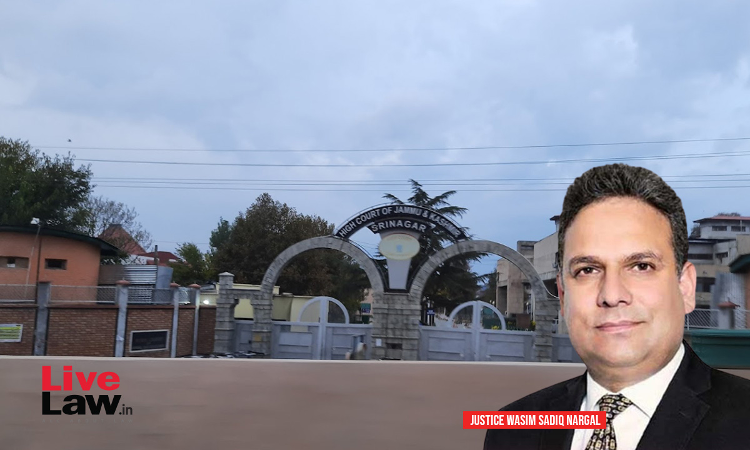- Home
- /
- High Courts
- /
- High Court of J & K and Ladakh
- /
- “Failure To Issue Notice, Denied...
“Failure To Issue Notice, Denied Fair Hearing”: J&K High Court Quashes Recovery Order Of ₹4 Lakh Against Fair Price Shop Dealer
LIVELAW NEWS NETWORK
25 Feb 2025 7:00 PM IST
The Jammu and Kashmir and Ladakh High Court has quashed an order directing the recovery of excess carriage charges amounting to Rupees over 4 Lakhs from a Fair Price Shop dealer, highlighting the violation of natural justice principles.A bench of Justice Wasim Sadiq Nargal observed that the failure to issue notice was an attempt to prevent the petitioner from having an opportunity to present...
The Jammu and Kashmir and Ladakh High Court has quashed an order directing the recovery of excess carriage charges amounting to Rupees over 4 Lakhs from a Fair Price Shop dealer, highlighting the violation of natural justice principles.
A bench of Justice Wasim Sadiq Nargal observed that the failure to issue notice was an attempt to prevent the petitioner from having an opportunity to present his case, underlining the critical need for a fair hearing in administrative and quasi-judicial proceedings.
Setting aside the impugned order Justice Nargal remarked,
“.. The record produced before the Court reveals that no notice has been issued to the petitioner before initiating the said enquiry proceedings.. Thus it can be inferred from the respondent's action that the failure to issue notice was an attempt to prevent the petitioner from having an opportunity to present his case, as a result, the respondents' action clearly violate the principle of natural justice with an ulterior and biased motive behind their conduct”
The case revolved around one Kunj Lal, a ration dealer from Village Chill Shamti, Tehsil Assar, District Doda, who challenged an order issued by the Tehsil Supply Officer, directing him to remit the recovery of excess carriage charges of food grains into the Government Treasury. The order was based on an enquiry report prepared without the petitioner's knowledge or participation.
The petitioner, represented by Advocates Rameshwar Singh Jamwal and Adeep Bandral, contended that the enquiry proceedings were conducted behind his back, breaching the principles of natural justice. The petitioner claimed he was not given an opportunity to defend himself or to present evidence in his favor.
On the other hand, the respondents, represented by Government Advocate Sumeet Bhatia, maintained that the enquiry was initiated following a complaint against the petitioner. It was argued that the petitioner had drawn excess carriage charges for transporting food grains and distributed the ration against the stipulated norms.
Observing serious procedural lapses in the enquiry process the Court emphasised that the enquiry was conducted without associating the petitioner, depriving him of the right to a fair hearing. Citing judgments, including A.K. Kraipak v. Union of India and D.K. Yadav v. J.M.A Industries Ltd., the Court reinforced the necessity of adhering to natural justice, especially when an order could adversely affect an individual's livelihood.
Furthermore, the Court noted that no show cause notice was issued to the petitioner before imposing the penalty, indicating a deliberate attempt to prevent the petitioner from presenting his case.
“The respondents were under legal obligation qua the petitioner to have issued a notice to the petitioner before initiation of the inquiry proceedings as the petitioner has the right to be heard which has not happened in the instant case”, the court remarked.
In alignment with these findings the Court quashed both the impugned order and the enquiry report. The Court allowed the respondents to initiate a fresh enquiry, if deemed necessary, but only in strict accordance with the law, ensuring the petitioner's participation and issuing a proper show cause notice.
Moreover, the Court directed the release of the amount of ₹4,38,305 deposited by the petitioner, along with accrued interest.
Case Title: Kunj Lal Vs UT Of J&K
Citation: 2025 LiveLaw (JKL) 58



